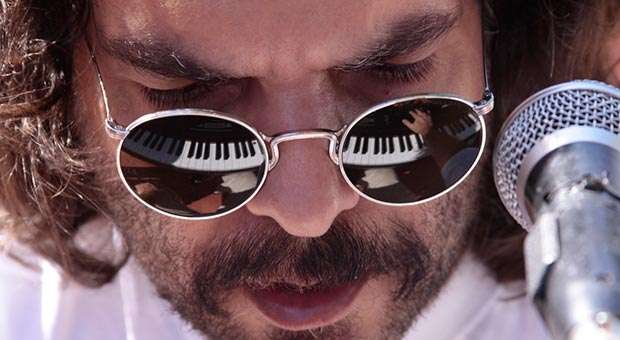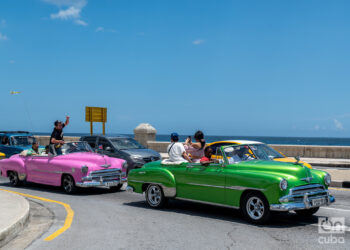The concert ends and Santiago announces he will repeat some songs. He admits he did not like the ay in which some of them were played, even though we all have been especially pleased. “You can stay in the room, or leave if you wish,” he says to the audience, his audience that has been faithful after decades, and knows him and loves him as he is. His public stays and accompanies him in this act of precious reparation, almost contradictory when they have already forgiven him when, with sympathetic laughter, made an inexplicable pause in the midst of a song and meticulously lit a cigarette, before saying: “I swear I do not remember what the fuck follows now.”
By then he was celebrating his fiftieth birthday through a recount of his work, so there were songs that he did not play long, and he had no qualms in showing it, a s he did when appealing to the collaboration of the audience during a live recording in 2000, “We’re making an album, so you should applaud a little bit more exaggerated.”
This is just Santiago’s lack of inhibition, mixed with his natural humor, sincerity, the same that as a shield only gives his naked heart, anti spectacle, understood as a claim, pose, sequin, and shave. With no rehearsal or script, or with one that will be subverted, happily disrespected, Santiago Feliu shows himself in the stage as if he were in his living room, during an average day; only that singing accompanied by his guitar, interpreting breathtaking lyrics and music, playing with his left, but retaining alignment of right-handed on the ropes, or sitting at the piano, the harmonica almost always in unison with the strings or even the keyboard.
He was born in Havana on March 29, 1962; student of Silvio Rodriguez, who considers him “a little brother”, and influenced by other greats like Noel Nicola, he has a prolific work collected in eleven phonograms. In the late ’70 Silvio himself presented to Donato Poveda and him on “Te doy una cancion” TV program. Then, in the mid-’80s he met those who, along with him, are considered part of the same batch between the new and very new trova, although there are essential differences between them: Frank Delgado, Gerardo Alfonso and Carlos Varela.
The youngest of the Feliu has imposed his poetic, result of trova, rock, jazz and other influences, in the aim-already visibly successful, of “achieving at all costs the best balance between music and poetry,” as he once said.
Santiago has lived outside Cuba, especially in Argentina, his second home. But he always comes back to this land. Cuban sensuality calls him, he knows the reasons for inspiration await for him around every corner, or any mouth, or where illusion had children, overflying dreams, waiting to be found, sublimated, sweetly sung, although then, at some concert, may be, for a moment, just forgotten.










